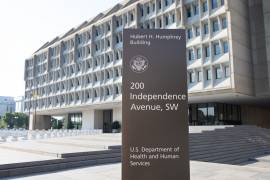Today, the U.S. Supreme Court ruled 7-2 to grant religious schools great latitude in determining who among their employees will be considered “ministers” and therefore be stripped of employment nondiscrimination protections. The ruling, in two cases joined for the purposes of argument, Our Lady of Guadalupe School v. Morrissey-Berru and St. James School v. Biel, comes three weeks after the Court confirmed that the sex discrimination protections of Title VII of the Civil Rights Act of 1964 protect LGBT workers.
The Supreme Court has opened a veritable Pandora’s Box that threatens the continued employment and financial security of thousands of teachers at religiously affiliated schools. While there is no serious dispute that top authorities at churches and religious schools are free to select those who lead worship services or teach the tenets of their faith, it stretches the term “minister” beyond recognition to also include those whose jobs or duties have little to do with propagation of the faith. Teachers of secular subjects are not clergy by any reasonable understanding of the word. They should not be deemed clergy simply to shield their employers from liability for wrongful workplace practices. The ministerial exemption especially should not apply to strip protections from teachers with secular roles at large educational institutions that serve the entire general public, regardless of whether those institutions have some sort of religious ties.
As Justice Sotomayor wrote in her powerful dissent:
“Until today, no court had held that the ministerial exception applies with disputed facts like these and lay teachers like [the teachers in these cases] … the Court insists that a “religious institution’s explanation of the role of [its] employees in the life of the religion in question is important.” … [B]ecause the Court’s new standard prizes a functional importance that it appears to deem churches in the best position to explain, one cannot help but conclude that the Court has just traded legal analysis for a rubber stamp.
“… Although today’s decision is limited to certain “teachers of religion,” … its reasoning risks rendering almost every Catholic parishioner and parent in the Archdiocese of Los Angeles a Catholic minister. That is, the Court’s apparent deference here threatens to make nearly anyone whom the schools might hire “ministers” unprotected from discrimination in the hiring process. That cannot be right. … It risks allowing employers to decide for themselves whether discrimination is actionable.”
At issue in the cases decided today are two lay fifth-grade teachers, teaching at separate Catholic schools, who were fired, one after being diagnosed with breast cancer and the other after turning 64. Both had minimal religious responsibilities, but the Court determined that it was not the job of our courts to determine who can be classified as a minister.
Given the extent to which religiously affiliated educational institutions have come to dominate the educational landscape in some parts of the country, this is an error with massive potential consequences for both teachers and American families. We do not live in a theocracy, and few of us would wish to. Yet, the Court today granted religiously affiliated schools carte blanche to designate virtually any teacher a minister and thereby strip them of nondiscrimination protections.
Read the amicus brief Lambda Legal joined in the case here.
Read about Lambda Legal’s work fighting religious exemptions here.





